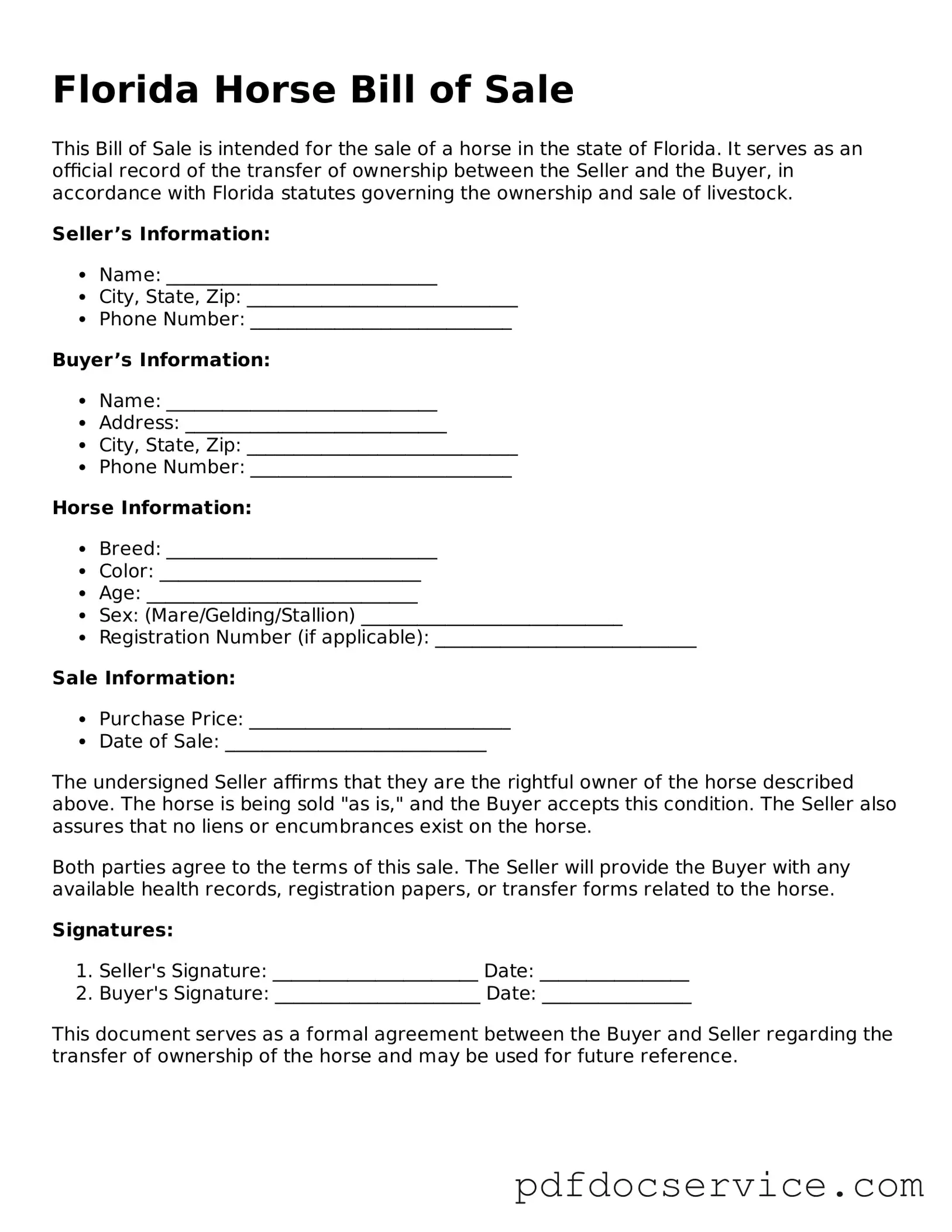What is a Florida Horse Bill of Sale?
A Florida Horse Bill of Sale is a legal document that records the sale of a horse from one party to another. This form outlines the details of the transaction, including the horse's identification, the purchase price, and the names of both the buyer and seller. It serves as proof of ownership transfer and can be important for future reference.
Why is a Horse Bill of Sale important?
The Horse Bill of Sale is essential for several reasons:
-
It provides legal proof of ownership.
-
It protects both the buyer and seller in case of disputes.
-
It may be required for registration with breed associations.
-
It can be useful for insurance purposes.
The form should include the following details:
-
The full names and addresses of the buyer and seller.
-
A detailed description of the horse, including its name, breed, age, color, and any identifying marks.
-
The purchase price and payment method.
-
The date of sale.
-
Any warranties or guarantees related to the horse's health or performance.
Is a Horse Bill of Sale required in Florida?
While a Horse Bill of Sale is not legally required in Florida, it is highly recommended. Having this document can prevent misunderstandings and protect the interests of both parties involved in the transaction.
Can I create my own Horse Bill of Sale?
Yes, you can create your own Horse Bill of Sale. However, it is crucial to ensure that all necessary information is included and that the document complies with Florida laws. Using a template or a form designed specifically for this purpose can simplify the process.
Do I need to have the Horse Bill of Sale notarized?
Notarization is not required for a Horse Bill of Sale in Florida, but it can add an extra layer of security. Having the document notarized can help verify the identities of both parties and confirm that the transaction took place.
What happens if I lose the Horse Bill of Sale?
If the Horse Bill of Sale is lost, it can be challenging to prove ownership. It is advisable to keep multiple copies of the document in a safe place. If necessary, a new bill of sale can be created, but it should be signed by both parties to validate the transaction.
Can I cancel a Horse Bill of Sale?
Once a Horse Bill of Sale is signed and payment is made, it is generally considered a binding agreement. However, if both parties agree, they can create a cancellation document. This document should outline the reasons for cancellation and be signed by both the buyer and seller.
What should I do if there is a dispute over the sale?
If a dispute arises, the first step is to review the Horse Bill of Sale for any terms related to disputes. Open communication between the buyer and seller is crucial. If an agreement cannot be reached, seeking legal advice or mediation may be necessary to resolve the issue.

